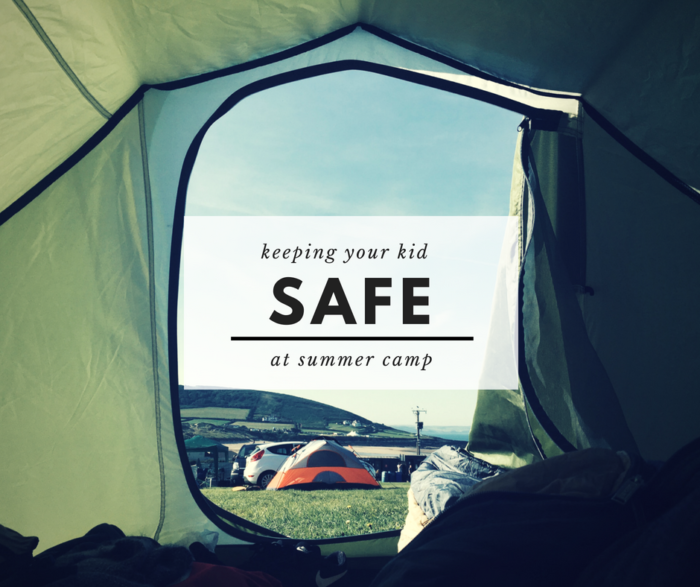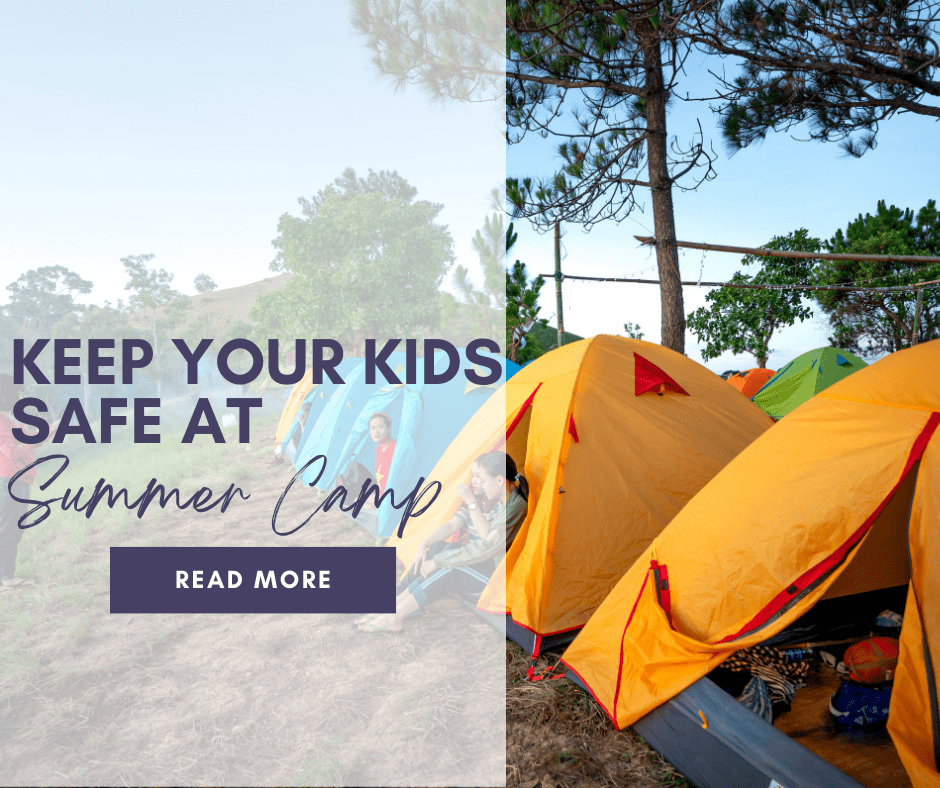
Summer is here and with that comes new and different activities and opportunities from the school year. Day camps, sports camps, vacation bible school, and overnight camps are wonderful places for children to learn and grow in so many ways. While summer camps can bring home kids full of self-esteem and smiles, they can also unknowingly harbor invisible dangers. It’s our job as parents to equip our children with the knowledge and skills to handle possible uncomfortable and/or abusive situations. A commonly overlooked situation is the presence of sexual perpetrators working with children.
Summer camps are HIGHLY susceptible to sexual predators. They often seek out venues that provide them greater access to children and summer camps are no exception for various reasons:
- Lack of parental supervision.
- Opportunities to single kids out (restroom breaks, changing for swimming, time in cabins at sleep-away camp, etc).
- Camps do not always throughly vet their volunteers/staff. BACKGROUND CHECKS ONLY WORK IF A PERPETRATOR HAS BEEN CONVICTED.
- Staff to child ratios can be too large for adequate supervision.
Sadly, sexual abuse will affect an estimated 1 in 4 girls and 1 in 6 boys before the age of 18.¹ Only about 10% of perpetrators of child sexual abuse are strangers to the child.² Perpetrators begin the grooming process by experimenting with things on the borderline of inappropriate to gauge a child’s reaction. They also groom other adults (called “Gatekeepers”). Predators come off as trustworthy, playful, and even overly helpful to gain trust from other adults. Grooming the gatekeepers is an effective tool to gaining greater or more intimate access to children. Jerry Sandusky and Larry Nassar were masters at grooming gatekeepers to maintain their facade of a caring, sympathetic, trustworthy adult to their victims. I know you are probably completely freaking out now but
before you forfeit your deposit in fear of something awful happening to your kids, take a deep breath. Simply having conversations about appropriate expectations can go a long way to keeping children from being victimized.
Here are some things you need to tell your kids:
- NO ONE should ever touch you where your swimsuit covers and no one should ever ask you to touch them where their swimsuit covers.
- You should NEVER be alone with just one adult. You can say-“I want to go where other people are.” And it’s ok to leave a situation where you feel uncomfortable.
- If an adult (or peer) breaks ANY rules, go tell another adult. It might not seem like a big deal, but if you know it’s against the rules, so do they, and you need to tell someone.
- We don’t keep secrets. There is absolutely NO reason an adult should ask you to keep something secret. You can tell Mom and Dad anything.
- If you ever feel uncomfortable about anything that has been said or done tell someone at camp and tell Mom and Dad.
A few things you, as parents, can do:
- Check and see if the camp is accredited by American Camps Association (ACA).
- Ask about the camp’s hiring and vetting process.
- Ask how they handle restroom breaks, shower time, etc. (There should always be at least two adults with the kids at all times.)
- Ask about the camp’s reporting system. ALL camp counselors are mandatory reporters; which means the adult who obtained information from a child will report it to the camp directors AS WELL AS to the police and/or Children’s Services. (TX has new laws on mandatory reporters.)
- Most importantly: LISTEN to your child. Are they telling you something in their own way? False accusations are rare. Listen to your child, be open and ask direct questions if needed. Stay calm and report suspicious behavior to the authorities immediately.
Sexual abuse can occur ANYWHERE and our children deserve to be equipped with the information, skills, and confidence to help keep themselves safe. This isn’t a one-time conversation and should be reiterated organically. Bath time, or potty time with younger kids, is a great opportunity to discuss body touches. The younger these conversations start, the easier they are for parents to deliver and kids to absorb. This article goes further into depth about what to teach your kids to help prevent sexual abuse and its a must read. Stay safe this summer!










